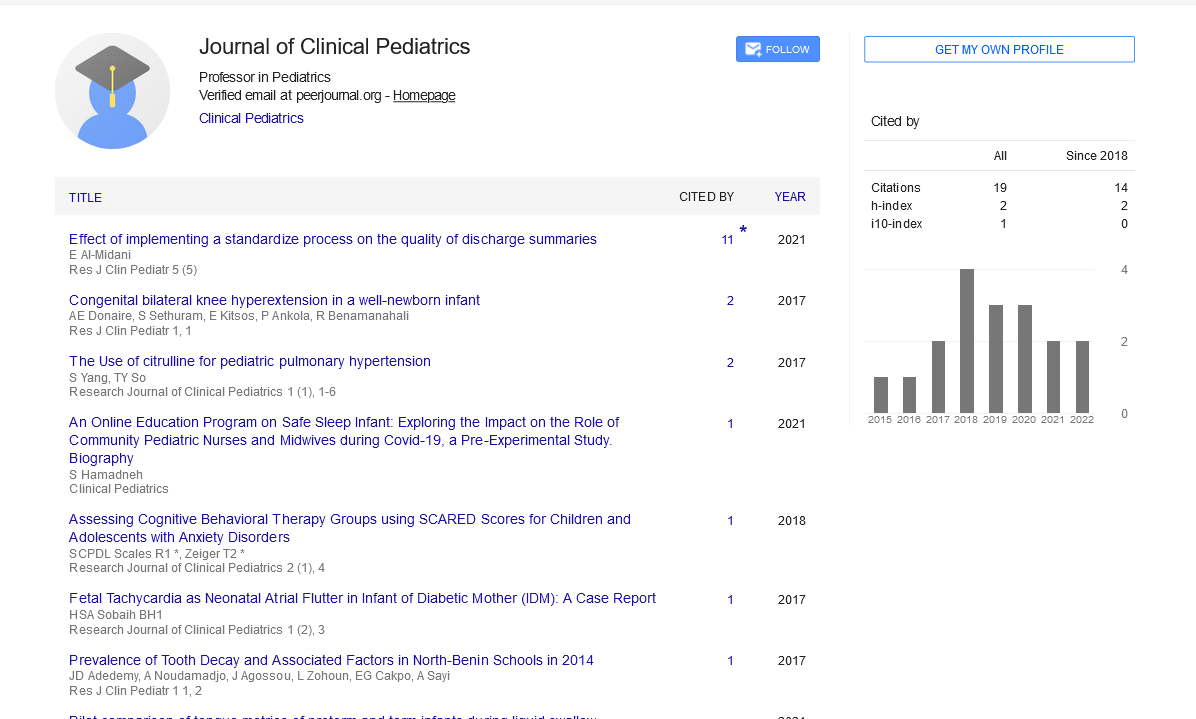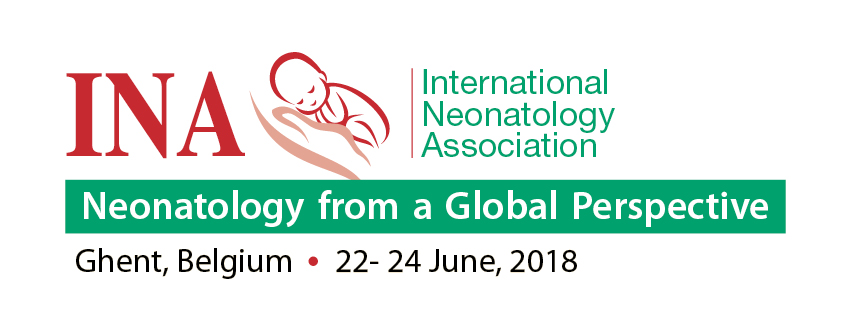Perspective, Res J Clin Pediatr Vol: 7 Issue: 3
Advances in Allergy and Immunology: From Diagnosis to Immunotherapy
Diene Carolene*
1Department of Pediatrics, Queen's University, Ontario, Canada
*Corresponding Author: Diene Carolene,
Department of Pediatrics,
Queen's University, Ontario, Canada
E-mail: diene_carolene@qu22.ca
Received date: 23 August, 2023, Manuscript No. RJCP-23-117472;
Editor assigned date: 25 August, 2023, PreQC No. RJCP-23-117472 (PQ);
Reviewed date: 08 September, 2023, QC No. RJCP-23-117472;
Revised date: 15 September, 2023, Manuscript No. RJCP-23-117472 (R);
Published date: 22 September, 2023, DOI: 10.4172/Rjcp.1000155
Citation: Carolene D (2023) Advances in Allergy and Immunology: From Diagnosis to Immunotherap. y Re s Clin Pediatr 7:3.
Keywords: Allergy, Molecular Allergen Testing technique, Component-Resolved Diagnostics, Genomics
Description
Allergy and immunology stand at the forefront of modern medicine, a field that has seen remarkable strides in recent years. The understanding of the immune system's intricate workings and the complex mechanisms behind allergic reactions has deepened significantly. From improving diagnostic techniques to innovative immunotherapies, the evolution of allergy and immunology has not only enriched knowledge but also expanded the capacity to enhance the quality of life for those affected by allergic disorders. Allergies occur when the immune system reacts inappropriately to substances in the environment that are generally harmless. While the immune system is designed to protect us from harmful invaders, it can sometimes become overzealous, perceiving allergens as threats.
Allergists and immunologists play a pivotal role in deciphering this complex interplay. From diagnosing allergies and immune-related disorders to developing cutting-edge treatments, they are at the centre of medical advances aimed at reducing the adverse effects of these conditions. Accurate diagnosis is the bedrock of effective allergy management. Recent years have witnessed significant advancements in allergy diagnostics, enabling healthcare providers to identify allergens with precision.
Molecular Allergen Testing technique delves into the molecular composition of allergens, allowing for more precise identification of the specific allergenic components responsible for allergic reactions. Component-Resolved Diagnostics (CRD) takes the diagnostic process a step further by identifying patients' sensitization to individual allergen components, providing a deeper understanding of allergenrelated risks and cross-reactivities.
Genomics, proteomics, and metabolomics provide comprehensive insights into the genetic and molecular aspects of allergies, paving the way for personalised medicine approaches. Immunotherapy, the practice of desensitising individuals to allergens through controlled exposure, is experiencing a renaissance. Recent innovations in this realm are broadening the horizons of allergy treatment. Sublingual Immunotherapy (SLIT) involves administering allergen extracts under the tongue, reducing the risk of severe allergic reactions. It is becoming an attractive option for many patients.
Allergen immunotherapy tablets provide a convenient, patientfriendly way to administer allergen immunotherapy. Tailoring immunotherapy to the individual patient's sensitivities and immune responses is gaining traction, maximising efficacy, and minimising risks. In the realm of severe allergic disorders, particularly allergic asthma and atopic dermatitis, biologics and targeted therapies have emerged as game-changers. These therapies target specific immune pathways and cytokines responsible for allergic inflammation, providing unprecedented relief to those who once had limited treatment options.
The gut microbiome's role in regulating the immune system and influencing allergies has become a hot topic. Emerging studies suggest that a balanced microbiome can help prevent or alleviate allergies. While these advancements are undoubtedly beneficial, the success of allergy and immunology care also hinges on patient education and engagement. It is essential for healthcare providers to ensure that patients understand their allergies, the options available for managing them, and the importance of adhering to prescribed treatments. Moreover, a patient's quality of life often significantly improves when they can openly discuss their allergies and concerns with their healthcare team.
Allergies and immune-related disorders are not limited by borders. They affect people around the world, making advances in allergy and immunology a global priority. Furthermore, understanding the worldwide prevalence and epidemiology of these conditions is essential for crafting effective public health strategies to tackle them.
Conclusion
The advances in allergy and immunology, spanning from refined diagnostic tools to innovative immunotherapies and biologics, have enabled in a new era of patient-centered care. The ability to deliver personalized treatment based on precise diagnoses empowers both healthcare providers and patients. As one can move forward, the challenges of disparities and access to care will remain on the radar, calling for a global commitment to ensuring that everyone affected by allergies and immune disorders can access advanced care. The ongoing collaboration between healthcare providers, experts and patients will drive further enhancements in allergy and immunology, providing hope and relief to countless individuals worldwide.
 Spanish
Spanish  Chinese
Chinese  Russian
Russian  German
German  French
French  Japanese
Japanese  Portuguese
Portuguese  Hindi
Hindi 
